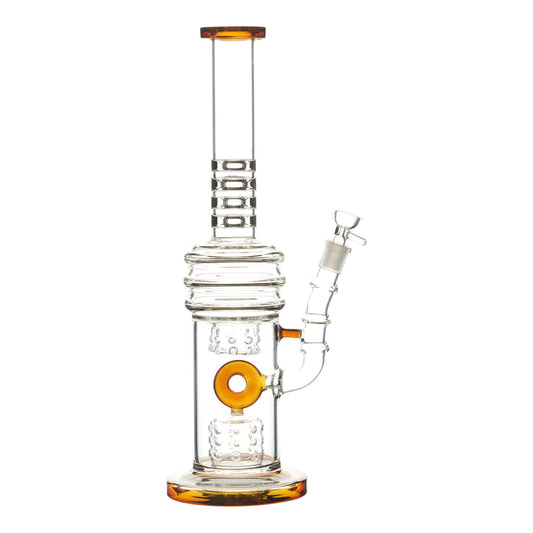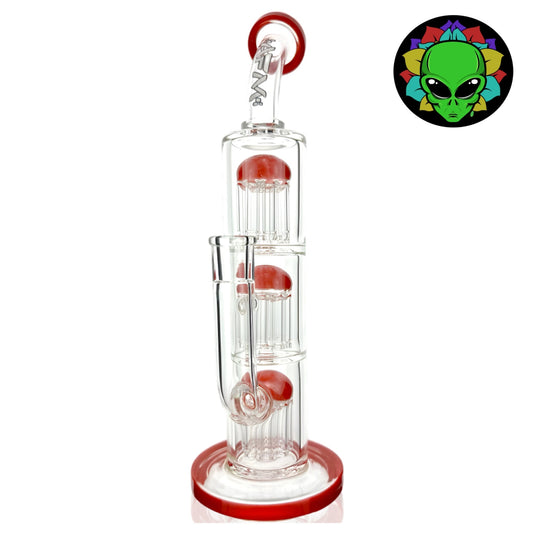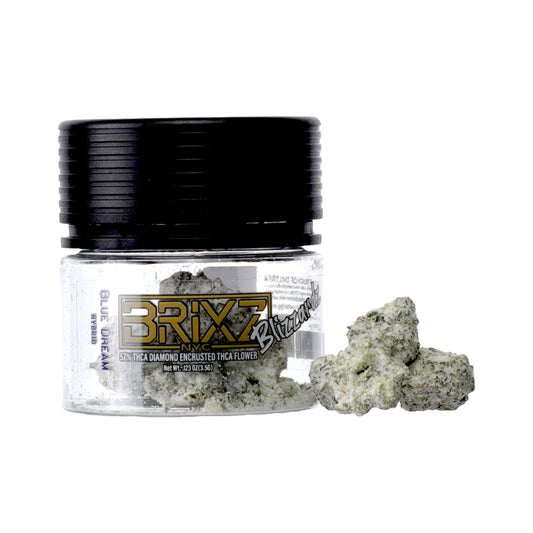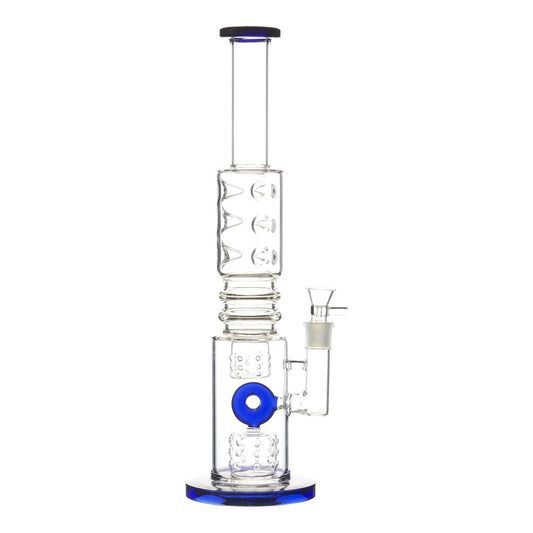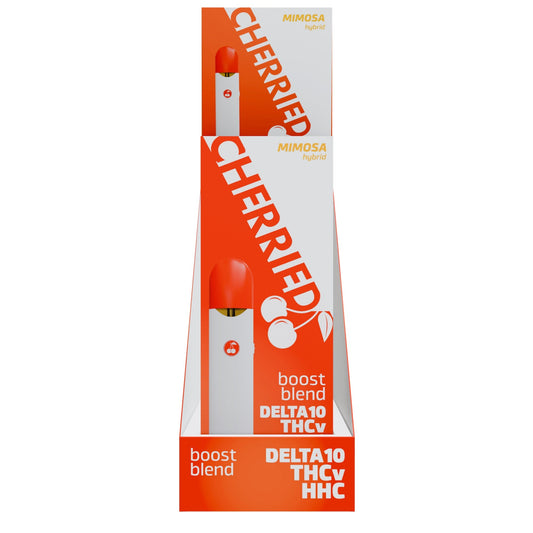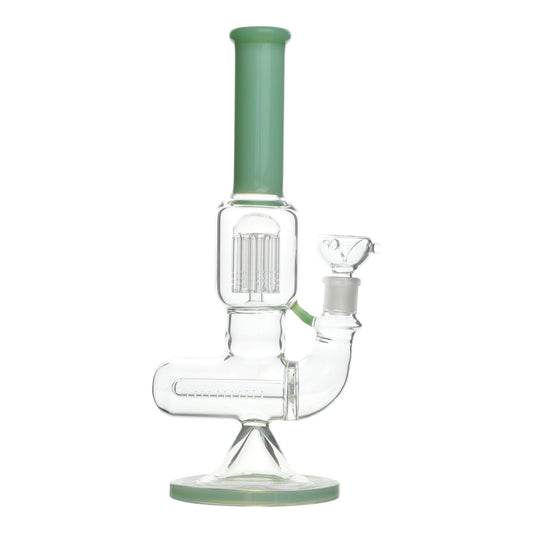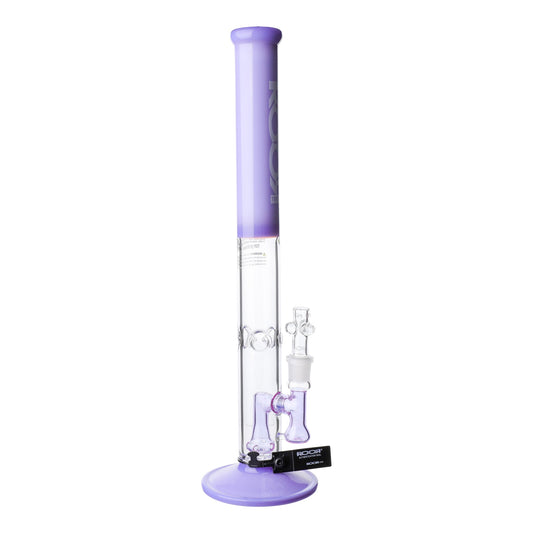When growing your own harvest, it is essential to use the best materials and seeds possible as this does make a difference in the quality of its yields. As part of the growing process, nutrients are what helps a plant grow into what it needs to be so it can deliver top notch buds! There are specific nutrient mixtures that are recommended for crops in order to get the best results possible. The best organic nutrients for plants will help to fertilize crops to produce large yields made of quality plant where you can truly taste and feel the difference in organic plants. You do not have to be a certified scientist to know what are the best organic nutrients for plants, just make sure you pay attention and take some notes for the gems of information about to be shared. Here is what you need to know when it comes to organic fertilizer and knowing which organic nutrients are best for your plants.
What are nutrients, and what are the most important ones?
There are several different organic nutrients for plants that must be mentioned, but it is important to understand plant nutrition in general so you know how and why each nutrient is vital to the growth process. When diving into plant nutrition, you might see the initials NPK all over the place when looking up organic fertilizer options. NPK stands for three macronutrients that are absolute essentials to growing plants properly: nitrogen (N), phosphorus (P), and potassium (K). Each is important to the growth process and are required for adequate growth, and there are many stores that sell pre-mixed soil with NPK mixed in, or NPK mixtures that can be added to any existing soil.
Organic nutrients: nitrogen
Nitrogen is an essential part of an ideal organic fertilizer mixture, as it contains chlorophyll which is what plants use and need in order to be able to convert sunlight into energy so it can start to grow. There are four main stages of the growth process: germination, seedling, vegetative, and flowering stages. Nitrogen is essential to the vegetative phase and provides protein throughout the growth process to build the strength of a plant. While nitrogen is just one of three essential organic nutrients for, it is important to note that nitrogen literally creates the building blocks and key ingredients of a plant.
Organic nutrients for plants: phosphorus
Phosphorus is another important organic nutrient that also uses energy from sunlight to grow healthy and prosperous yields. Phosphorus directly affects the root of plants so if it is ever lacking it will in turn affect the rest of the growth stages and flowering quality.
Organic fertilizer: potassium
Potassium is the last of the trio when it comes to creating the ultimate organic nutrient mixture. Potassium is essential because it is what keeps the plant growing healthy while maintaining water and salt levels. Telling signs that a plant is lacking in potassium will be a burnt or dry looking appearance, meaning the water and salt balance is off.
How to use and mix nutrients?
If you are just starting out with growing your own and need to know more about proper organic nutrients, just know that once you learn what you need to know it can be applied to every plant cycle you choose to grow. As time goes on and with gained experience, growers are able to tell which NPK ratio works well for them and when their plants need some TLC or revival. There are certain points in the growth stages where certain nutrients should be added and once you get the hang of this whole growing thing it will become a lot more apparent when a plant needs what based on how it looks.
Sometimes there are store bought products that already have the proper organic nutrients for plants mixed into the appropriate ratios necessary for growth. If you ever come across NPK ratios, keep in mind that the most ideal ratio is 3-1-1 for the growing stage, then adjusted as it approaches flowering phases.
How significant are timing and frequency when using nutrients and fertilizers?
Stores make it easy to grab all the organic nutrients individually or altogether pre-mixed into a bottle or mixed into soil. It is necessary to remember that NPK ratios will differ as it moves from the vegetative phase to the flowering stage, and brands make it pretty easy for users to identify which product is best for which stage of the plant growth process. Typically, NPK mixtures will have a ratio and you can research the different ratios that experts recommend based on its stage of growth. Every grower will have a rule of thumb to go by in terms of ratios, and if in doubt it is always best to do a 1:1:1 ratio where there are equal amounts of organic nutrients for plants and then build from there.
What are the nutrients for a plant’s vegetative and flowering stages?
The vegetative stage will have different NPK ratios as compared to the flowering stage, and this is because the plant needs more and less of certain nutrients in order to properly grow and build strong roots, which can in turn contribute to high quality yields after the flowering stage. Typically, in the vegative stage the plant could use a 3:1:1 NPK ratio because nitrogen is an important nutrient to have when in the vegetative phase.
Another important thing to note when using pre-mixed NPK products, it is best to double check that the soil you are using does not have extra nutrients in it as well as many do come equipped with nitrogen nutrients to jumpstart the energy conversion process. As a rule of thumb, less can be more when it comes to making organic fertilizer, as you can always add and you cannot take away. Oversaturating a plant with too much of any nutrient can be just as detrimental to the plant’s health (if not more) than a plant that is a bit nutrient deficient. This is why it is recommended to start out with a 1:1:1 ratio and increase organic nutrients for plants on an as needed basis.
In the flowering phase, organic nutrients for plants levels will need to be adjusted, as the plant will not need as much nitrogen and will most likely need more phosphorus and potassium. Again, ratios are often helpful to use as a gauge to understand how much each plans need to grow properly but is not an absolute answer to every plant and its growth journey. Some plants will need more organic fertilizer than others and depending on the strain and type of seed that is being used it can really make a difference in how many nutrients are needed for optimized growth.
What about pH?
The proper pH levels for plants are anywhere between 5.8 and 6.2, meaning it is slightly acidic but not completely. This is when water quality comes into play, because as long as you have a trusted water source and are able to give your plant quality soil, it should adjust itself especially if you properly germinate the seed beforehand. When growing your own plants, it is important to know each step and its importance so that you can comprehend what the plant is going through during its growth cycle.
Creating an organic super soil of sorts is most ideal because doing this from the jump will cultivate a healthy environment for a plant, and growers should not have to worry about pH balance if handling the soil properly from the beginning. It is vital that organic soil is present because the microorganisms that are in the soil are actually there to break down the nutrients and feed those nutrients to the roots, so the plant can strengthen and grow. Starting out with soil that has organic nutrients will only allow the plant to be in its best environment and start to get the nutrients it needs from its infancy.
PH adjustment is not totally necessary though, and it is most important to evaluate nutrition and see the levels of nutrients that your plant babies are receiving. If you are experiencing a lack of organic nutrients, this is more important to pay attention to than it is to think about adjusting pH balance. PH balance does not mean anything without the proper nutrients guiding the plant through its proper growth cycle, so if you need to assess one or the other it is best to focus on organic fertilizer.
What is compost tea for plants?

Honestly, newbies are probably thinking, “what the heck is compost tea?” but don’t knock it till you try it! Basically, compost tea is like one big cup of water filled with nutrients after sitting in a compost bath for a period of time. If you know anything about compost, you will understand that using waste is essential to living a more sustainable life and practicing the act of using every last bit of what you have. Because the last thing anyone wants to do is throw away money, and if you are throwing away scraps that can be used for compost - well, that is exactly what you are doing.
People might be confused when they first hear about compost tea, and it is not the type of tea that is made for us to drink. It is more a type of brewed up concoction for the plant that is similar to infusing a tea bag into water. Compost is considered an organic mixture of microorganisms and nutrients that are jam packed with what a plant needs to have the most healthy roots, soil, and leaves so that it can properly flower and produce yields. But why else would you want to use a compost tea on your plants to act as organic nutrients?
Benefits of compost tea as organic fertilizer
While many growers can utilize the classic compost method where compost is added to soil, creating a compost tea made of aerated water and compost has quite a few benefits that most growers would love to give their plants once they know how to make this wonderful concoction. As compared to the traditional compost method, a compost tea for plants can help with the following to overall improve a plant’s life cycle:
- Strong levels of nutrients to help with plant health and contributes to strengthening a plant’s immune system
- Helps to control weeds and insects that are harmful to the plant that could cause any potential diseases
- Drowning out chemical fertilizers and eliminating them from the plant’s soil that could have occurred if working with plants outside
- Increases water retention and helps to keep the plant hydrated without overdoing it
How to make compost tea for plants
So how do you create this magical potion of active nutrients that seem to be nothing but a blessing for your fellow plant babies? Gather up the following and you should expect a compost tea in just about 24 to 36 hours!
- Food and nutrients
- Worm castings
- Oxygen
- Compost
Food and nutrients are not just the scraps you are saving from throwing in the trash, these are intentional items that should be added to the compost tea for the ultimate compost cocktail. Of course compost alone will still have a lot of the good nutrients you need, adding in the following will most definitely enhance any compost tea recipe.
Seaweed
Seaweed or kelp is an excellent source for fungi to grow during the compost brewing phase. Seaweed basically acts as a surface for fungi to be able to latch onto and grow on.
Molasses
Believe it or not, molasses serves as a nutritious food source for microorganisms you want present in the compost tea. Molasses essentially feeds the good bacteria and allows nutrients to be maximized as much as possible in the compost tea.
Worm castings
Most probably prefer not to deal with worm castings, but once you consider that worms are a great host to microorganisms and absorbs so many beneficial nutrients it is a no brainer once you realize how useful worms can really be.
In addition to the following supplies, you will also need:
Step by step guide to making compost tea
Actually making compost tea is pretty simple, it is the waiting time that might get you feeling impatient but there is nothing much you can do about that. Once the waiting time is done, you will see how hands off the process is and how simple it can be to make a delicious and beneficial compost tea for your plant babies.
1. Build the brewing base.
Using the aquarium bubbler, bucket, and air pump, this is what the brewing base will be made of. Putting the aquarium bubbler in the bottom of the five-gallon bucket and using the air pump and plastic tubing, once everything is in place it can be filled with the non-chlorinated and filtered water.
2. Fill up the tea bag with compost tea ingredients.
Using whatever mesh bag or panty hose you have on hand, this is the time to take all of the compost tea ingredients and combine it into the bag. If you are using worms, please remove any of them from the compost prior to adding ingredients to the bag.
3. 24-36 hours before compost tea is ready!
The brewing base setup should be used for up to 36 hours and add the compost tea to your plant’s soil as soon as possible. If you wait too long, the microorganisms in the compost too will not survive and the compost tea would be defective at that point. Using within a 36-hour period is best in order to get the best results.
Tips for compost tea prep
If you are still a bit confused about how to successfully make compost tea for your plants, there are always a few tips and tricks that can be done to make your compost tea the best batch you have ever made. Here are a few tips and tricks on how to get the best compost tea for your plants:
- Aerate compost! One thing that many plant growers do is take the extra step to aerate their compost, because if not it will only slow down the compost process and who wants that? It is fairly easy to aerate compost, all you need is an air pump, a mesh bag/panty hose, and an aquarium bubbler. These things are fairly easy to get at your local pet supply store or tools shop. You can also use aerated water, but tap water that has been sitting out for 24 hours prior to brewing compost tea is sufficient.
- Use clean water where you know where it comes from. It is very important to use clean water when creating compost tea as this is a vital part of the nutrients and microorganisms that will grow and strengthen over the 24-36 hour time period. Using non chlorinated water, leave it out to get rid of the chemicals and then put together your compost concoction. Also, when brewing the compost tea it is probably a better idea to do it out of direct sunlight to avoid too much heat exposure.
- Continuous water flow. Continuous water flowing through is just as important as it being clean water and non chlorinated. The brewing base will keep the water continuously flowing and this will help to cultivate the best environment to create compost tea!
- Adding in nutrients. Midway through the compost brewing process, it might be a good idea to add more bacteria or fungi food to encourage microorganism growth for a major boost in your compost tea.
Trying out different methods when brewing your compost tea is ideal as you might come across a concoction that works better for you than others. Compost tea does not have to be complicated but there are so many ways to take advantage of this method to give your plant babies the best nutrients possible.

Can you combine organic and synthetic fertilizers?
It is in fact possible to combine organic and synthetic fertilizers, so you do not have to choose one over the other if you are having a hard time with options. Depending on the results you are looking for and how immediate you want it to be, using a combination of synthetic fertilizers along with organic fertilizers can in fact help jumpstart soil regrowth and assist with soil health over time, while the synthetic fertilizer works instantly.
Synthetic fertilizers do not add organic nutrients to the soil, therefore they should be used with some caution especially if introducing organic fertilizer to the mix as it does contain microorganisms that are important for the plant to use and intake over time.
Whenever using any type of fertilizer, it is best to take caution and use little by little if ever in doubt. Just like giving organic nutrients for plants it is best to be mindful of soil and fertilizer levels as there is such a thing as too much. You can actually burn the roots and leaves of your plant if you use too much fertilizer so it is best to pay attention to the packaging instructions and also figure out a happy medium amount that works best for you. Remember, you can always add but you can never subtract! If you are ever in doubt, going to your local nursery or hardware store that sells plants and fertilizer should have some decent experts that can give you great advice on this matter.
Most gardeners actually use different types of fertilizer anyway as there are different combinations that can provide various benefits. It is suggested to use your own mi of fertilizer once you understand what you prefer in a fertilizer mix, as pre-mixed fertilizer brands do not always have the exact amounts you are looking for.
Is organically grown plants better?
Organic anything is typically better than any other option, and mostly because it cuts out the chemicals and pesticides that can be found in certain fertilizers and soils. When it comes to safety, organic plants is the better option because you know the quality of its yields are about to be lit. Organic plants are most definitely superior in terms of taste, texture, aroma, and so on. The terpenes and flavor profiles that are found in organic plants strains are usually top notch and hard to compare to.
Do organic plants grow slower?
Organic nutrients for plants are important, especially when it comes to creating organic plants in general because the process differs a bit from other methods. Organic plant fertilizer when used for making organic plants treated in a special way because the soil of organic plants work better when slowly reacting and giving the plant what it needs. Too much nitrogen release could potentially be messy and brutal, as it might damage the foliage and plant overall if it starts to become too much to handle.
Final thoughts: organic nutrients for plants
Hopefully you have learned everything you need to know regarding organic nutrients for plants and how to make the best organic fertilizer. A few things to remember is to make sure your NPK ratios are appropriate depending on the plant’s growth stage, and do your best to avoid letting any nutrients run out or deplete! Regular soil does not have nearly as many nutrients as organic soil does, which is what makes organic soil the most ideal when it comes time to pick. Whether you are using fertilizers or liquid versions, it is best to test pH levels at every point to evaluate if a part of the process might be adjusting the pH levels. Growing special plants is actually an incredible pastime and hobby to take up whenever you wish, and the yields at the end are the most rewarding.
Do you have any questions for us and our team? Feel free to check out our EF420 FAQs that will answer everything you want to know or contact us for other questions you might have. The EF420 story is one we share because who doesn’t like speaking about their love for plants? We have the EF420 Rips Sweepstakes going on to win yourself some high quality prizes, so make sure you’re in the know to give yourself a shot at one of our epic giveaways.









